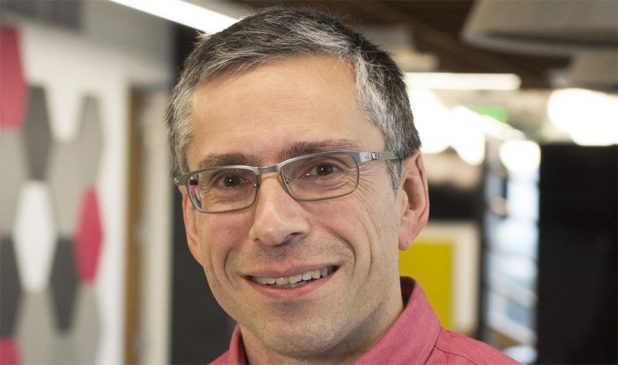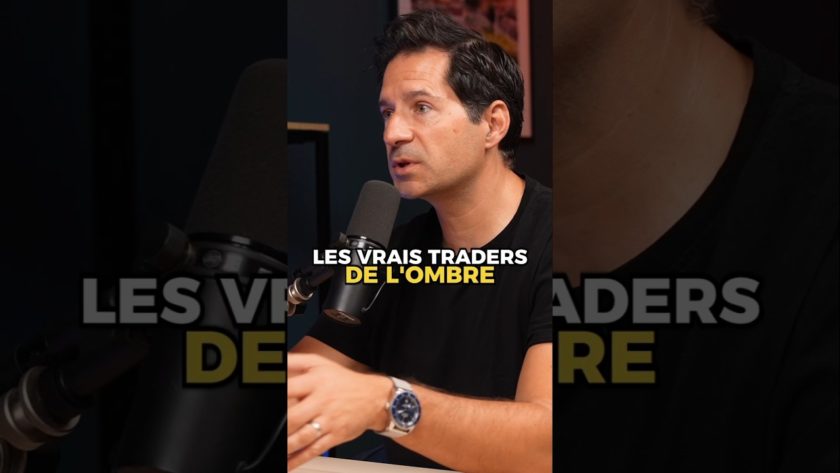‘We Have Almost 200 Blockchain Projects Under Our Belt.’ Exclusive Interview With Paul Brody, Ernst & Young Global Blockchain Leader
January 25, 2019 by George Levy
With all the buzz surrounding blockchain as a key technology for increasing trust in organizations, Bitsonline’s George Levy sought and interviewed Paul Brody, Ernst & Young’s Principal & Global Innovation Leader on Blockchain Technology to learn more about how the firm is seeing the growth and adoption of blockchain. The big 4 accounting and auditing firm has stated that “It’s trust that enables organizations to create value and capital markets to function properly”.
Also read: Blockchain Regulatory Certainty Act on Congress’s Slate
Join the Bitsonline Telegram channel to get the latest Bitcoin, cryptocurrency, and tech news updates: https://t.me/bitsonline
Ernst & Young and the Role of Trust in Organizations
As one the four largest accounting and auditing firms in the world, E&Y is commonly called upon to perform the audits required of publicly traded U.S. corporations. Their reputation for delivering accurate and precise data is essential in maintaining the value and integrity of the financial markets.
However, Ernst & Young offers a wide range of services above and beyond tax advice and auditing, and as we learned in this interview, the company’s blockchain endeavors have grown to more than 200 projects and expanding further, as they develop new and innovative blockchain solutions.
In this article we share some of the valuable insights that we gained from Paul Brody on the state of blockchain and where he sees its future.
An Interview With Paul Brody, Ernst & Young Principal & Global Innovation Leader, Blockchain Technology
George Levy: I’ve been following your work for some time, specifically since you started posting in 2016 about your vision for blockchain 101. Much of what you were talking about in 2016 is what we’re seeing happening right now. How have you seen the progression of that initial vision that you had back then, to what you’re seeing happening right now in the market.
Paul Brody: The thing that’s been exciting, a surprisingly large amount of that vision has started to become reality, but we have so much more nuanced understanding about what blockchains are really good for, and what they’re not so great for–where they’re successful and where they aren’t, than we did two or three years ago.
Three years ago, I had done a couple of blockchain projects, today we have almost 200 blockchain projects under our belt. So we have a lot more battle scars and victory trophies to kind of reflect on.
GL: So you have 200 projects that you’ve done in the blockchain space?
PB: It’s actually quite a bit more than that. If I include audits, we’re probably quite a bit higher than that. Right now, we are growing enormously so far in 2019 if you compare us to where we were a year ago.
Almost all of that growth is driven by two things:
Number one, on the enterprise side, there’s been very little impact on enterprise demand from the cryptocurrency and crypto asset price collapse.
Where there are good proven use cases, that’s proceeding on pace. If anything, it’s stepping up a bit.
We had a bunch of major wins recently, like the Microsoft Xbox video game platform and the EY wine. They’re proven data points we’re doing. We have multiple live partners with Microsoft now. So as the solutions mature, the demand in the enterprise is maturing. So that’s one big driver.
The other big driver of demand is over on the cryptocurrency side of cryptocurrencies and crypto exchanges.
There are fewer of them, and the market has declined significantly, but it’s also maturing with tremendous speed, and there’s a huge amount of demand from the leading players to mature their process to be properly audited. To implement KYC (Know Your Customer) and AML (Anti Money Laundering) because of the poor tax infrastructure.
That’s driving a huge increase in our audit and assurance business.
GL: To put things into context, this week is The North American Bitcoin Conference in Miami, and there’s an event happening in parallel on Thursday called Supply Chain 2.0.
It’s specifically about blockchain being applied in supply chain management.
PB: Our wine blockchain is running with partners, and we just extended our food traceability blockchain to Carrefour. Food traceability has been a very successful application.
But what I think is missing, and I think what we’ve focused on, is a food trade traceability of any kind of asset.
If I know what I’ve bought and I know where it is, why shouldn’t I be doing my procurement and payments as well and managing the logistics of the blockchain.
So I think we will see over time these kinds of food traceability projects evolve into a full-fledged supply chain and procurement infrastructure.
What’s very exciting is Carrefour is using our Ops Chain supply chain solution, and unlike some of the others, we don’t have a sort of “exclusive to food” blockchain solution.
We have a supply chain solution to tokenize assets, and deploy them on private or public blockchains, and it doesn’t matter whether it’s food or a vaccine. We also have a vaccine traceability project that we’ve won, that we’ve deployed.
It doesn’t matter whether it’s food or a vaccine. It’s represented as a digital token and you have an asset that has metadata connected to it and information like refrigeration and storage and distribution. There’s no reason to have a separate blockchain.
You can implement all of those things in the same environment.
Follow Paul Brody on Twitter and learn more about what Ernst & Young is doing with blockchain.
What are your thoughts on the growth and development of blockchain in enterprise businesses? Let us know in the comments section below.
Images via Ernst & Young, Pixabay







